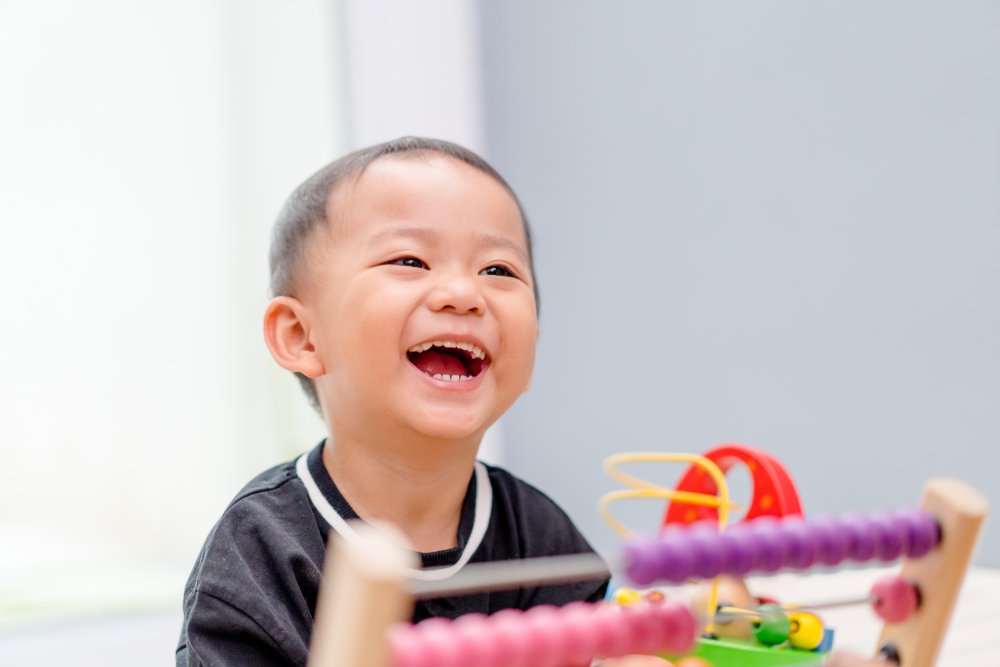Key points:
- Children develop number awareness by recognizing numbers, understanding how counting works, and learning one-to-one correspondence.
- Sorting and classifying objects is an important part of developing early math skills as it helps children identify and describe relationships between objects.
- Children at this stage can identify when there is one object or more than one, but may not yet be able to identify how many objects there are when there are more than one.
- Parents can support their child’s math development by engaging in activities that involve scavenger hunts, classifying objects, and reinforcing one-to-one correspondence while counting.
Your little one’s math skills keep growing, and as they become older, they also move on to more complicated concepts. We have discussed the strong foundation you laid out when they were a baby, then you supported them through the start of their counting and number skills. Now let us show you what comes next.
Number awareness
During this stage, their math skills are developing even further. With your help, they will start the necessary road to acquire number awareness. What is this? Math and number awareness refer to the ability your little one has when recognizing numbers.
They might now be able to identify that “2” is related to the word “two”, they might also understand how counting works and will be able to learn one-to-one correspondence. This means they will count an object by mentioning a number, even if it’s not the correct one, they will now know that object corresponds to a concept.
It’s important that your child can touch the items while counting, so that each item represents a number. Children learn math skills through hands-on play and the use of concrete examples using blocks, toys, or other household items.
Al this time, they’re probably been identifying patterns in their routines; but now they’ll be transporting this knowledge to some new and more complex skills.
Classifying
Math and number awareness is the foundation of for learning more advanced math concepts. At this point, they might start to develop some of these by engaging in sorting and classifying.
You will notice how your little one will start putting together things that are alike. This can be caused by two types of thinking. One, is that your little one can now notice the differences between two or more objects. They have grown their curiosity and abstract thinking enough that they can recognize what the object does or how it is used. The other type of thinking is also related to imitation. They might see you classifying objects and follow your cue. Classifying objects is an important part of developing early math skills because it will help them identify and describe relationships between objects. While they are playing they’re also supporting their math skills such as understanding one-to-one correspondence.
Quantities
They were born with a natural skill to recognize the existence of quantities. But now they will develop this even further. During this stage they might be able to identify when there is one object or more than one.
They will also be able to understand there’s more than one, knowing there are multiple objects but will not yet be able to identify how many there are.
Counting
When trying to establish quantities, they might count up to three or maybe a little bit more, with a few mistakes regarding the counting order. This is because they understand that they can assign only one number to each object, however they don’t yet understand that the number assigned relates to a quantity, so they start randomly assigning numbers.
How can you help them during this stage?
- Have a scavenger hunt. You can go to the park and collect leaves from the ground. Once you guys have collected what seems like enough. You can start classifying them by the criteria of your choice. It can be by colors, shapes, sizes, whatever fits you. They will need support during this activity, it’s a great chance to spend quality time together and enjoy some fresh air.
- Classify yourself, while using language to explain the reasoning behind this classification. This is something you can do while tidying up. Maybe you are folding clothes and separating them by the type of garment. This can a be a great chance to ask them to help you out! At the same time, you will influence their empathy, independence, self-care, fine motor and imitation. Such a useful activity!
- Support them while counting, if you see they are taking objects with their hands to count them on a one-to-one correspondence, encourage them to use their sense of touch. This way they can reinforce that when they take one object, they say a number.
In most of these skills, they will be working on their understanding of number relationships and the purpose of numbers in counting. Learning this, might lead your child be able to recognize patterns in materials and objects around them later on in life. Most importantly, this fun way to learn is a great opportunity to spend quality time together.
Whole Child Parenting by The Whole Child Parenting Program was consulted.








